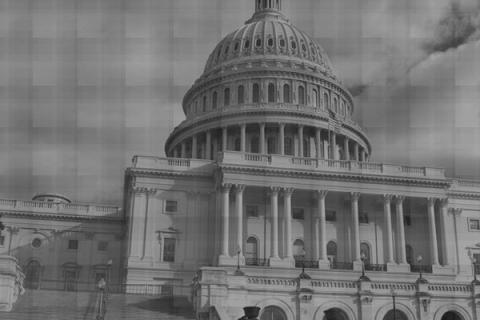Former Pennsylvania Senator Rick Santorum made waves this week when he told Politico that there are no real Tea Party candidates in the 2012 mix.
"There isn't a single candidate running for president who can claim to be a tea party candidate. That's by definition. The people involved in the movement weren't involved in politics, and were only activated by what they saw in Washington."
But Santorum made an exception for himself, saying "I qualify. I was out, content to be out, but now I feel compelled to come back." The Politico originally reported that Santorum included Gary Johnson as a possible Tea Party candidate, but later issued an update reporting that Santorum claims he "misspoke and meant to say Ron Johnson, the senator-elect from Wisconsin."
Gary Johnson, however, would also qualify as a Tea Party candidate for president according to Santorum's definition. After ending his tenure as governor in 2000 because of New Mexico's term limits, he has only recently become involved in politics again through his Our America Initiative, an educational non-profit dedicated to "enlighten the population about civil liberties, free enterprise, limited government, and traditional American values."
But, what would qualify Johnson as a Tea Party candidate in a more substantial way is his political record. Rick Santorum's definition of "Tea Party candidate" is at best, a little odd- and at worst, way off the mark. By his definition, Al Gore could throw his hat into the ring and qualify as a Tea Party candidate, because he hasn't been involved in politics since losing his presidential bid in 2000, and would only be coming back now as a result of what he sees in Washington.
No- true Tea Party candidates are those who most faithfully adhere to the principles of the Tea Party. While some commentators say those are hard to pin down, it's clear enough that the original round of protests and subsequent political movement were launched by Ron Paul supporters back in 2007. Then, the next, post-Obama phase of the nationwide movement was launched in early 2009 when CNBC host Rick Santelli exorciated the TARP bailout and stimulus bill.
As the movement grew, Tea Party protestors began using TEA as an acronym and calling it the "Taxed Enough Already" movement. So which candidates can lay claim to the principles of fiscal conservatism, lower taxes, less spending, and not using taxpayer dollars to bail out and subsidize the malfeasance of Wall Street bankers? Certainly not Rick Santorum.
While the Tea Party's current front man, Rand Paul calls himself a "Constitutional Conservative," who wants to restrict the size, role, and influence of government to the parameters set forth in the Constitution, Santorum has proudly brandished the Bush-era mindset and label "Compassionate Conservative," with the desire to use government to engineer a society- and world- in the image of Santorum's own personal values.
Neither can Newt Gingrich, who said he would have reluctantly voted for the TARP bailouts if he were still in Congress. Sarah Palin, who supported those same bailouts when her running mate John McCain voted for them and continued to endorse bailout-voters for office in 2010. Mitt Romney, whose health care reforms in Massachusetts were more radical than even Mr. Obama's health bill. Tim Pawlenty has vocally supported Massachusetts-style health care reform (including the individual mandate that angered so many Tea Party protestors in 2010). And Mike Huckabee, the tax-hiking Arkansas governor, received an F from the libertarian Cato Institute in its 2006 Fiscal Report Card.
Gary Johnson on the other hand, who Santorum now ironically says he mistakenly named as a Tea Party candidate, governed New Mexico for eight years during which the state saw no tax increases- the longest such period in its history. He vetoed over 750 seperate pieces of legislation to keep government from growing (that's more than the vetos of all 49 other governors over the same period combined), and at the end of his tenure, the state had 1000 fewer government employees with no firings. That is a record in line with Tea Party principles.
Also in play is Representative Ron Paul, who for over 20 total years as a U.S. Congressman has consistently been named "the taxpayer's best friend in Washington" because he has never voted to raise taxes, pass an unbalanced budget, or raise congressional pay. He has also never taken a government-paid junket and returns a portion of his annual office budget to the Treasury each year. That is a record in line with Tea Party principles.
Do records like that even compare with those of Newt Gingrich, Sarah Palin, Mitt Romney, Tim Pawlenty, Mike Huckabee, or Rick Santorum when it comes to limiting the size, role, and influence of government? Not hardly.

